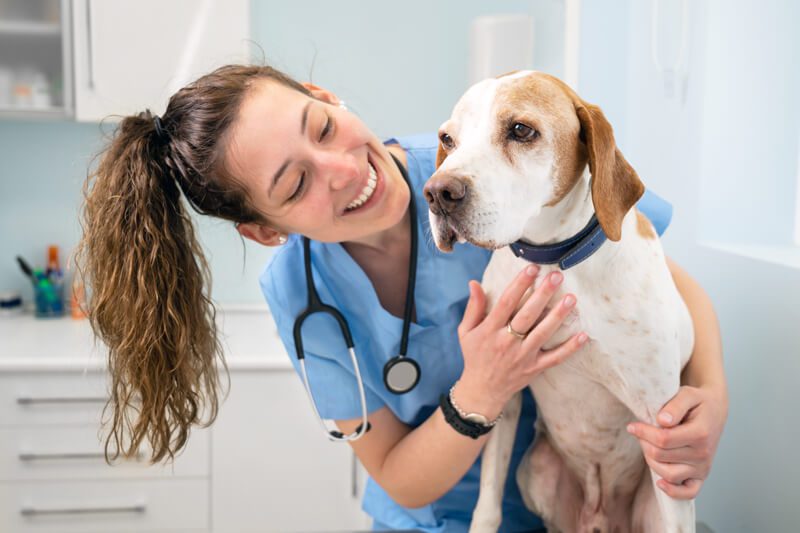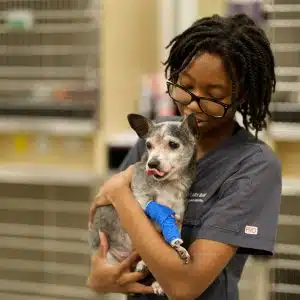Veterinary Oncologist explains frequent care options for feline cancer
Wiki Article
The Value of Early Discovery: Insights From a Veterinary Oncologist
Early discovery of cancer in pet dogs is an important topic for pet dog proprietors and vet specialists alike. Vet oncologists highlight the significance of recognizing subtle indications that may show significant health and wellness concerns. Usual signs frequently go unnoticed up until they intensify. Recognizing these very early indication and improvements in analysis strategies can make a substantial distinction. What steps can pet proprietors require to boost their family pets' opportunities of early medical diagnosis and better treatment results?Recognizing Cancer Cells in Animals: Usual Types and Signs
While several family pet owners may not realize it, cancer cells is a considerable wellness worry affecting animals, much like it does in people. Usual kinds of cancer in pets include lymphoma, mast cell lumps, osteosarcoma, and mammary growths. These malignancies can materialize in numerous means, relying on their area and type. Symptoms frequently consist of unexplained weight-loss, consistent throwing up, modifications in cravings, or uncommon swellings and bumps. Animals might additionally display lethargy, trouble breathing, or reluctance to workout, which can indicate underlying wellness problems. Early indications can be subtle, making it essential for pet owners to be observant of their pets' habits and physical condition. Understanding these common types and associated symptoms can encourage owners to look for vet care promptly, possibly leading to earlier diagnosis and therapy choices. Acknowledging the indications of cancer in pet dogs is a crucial action towards boosting their health and wellness and top quality of life.The Role of Vet Oncologists in Very Early Detection
Veterinary oncologists play an important duty in the early detection of cancer cells in family pets, as their specialized training outfits them with the skills necessary to recognize subtle signs that may be forgotten by family doctors. They utilize a combination of professional expertise and advanced diagnostic devices to analyze clients extensively - Pet Cancer Surgery. By recognizing early signs and symptoms and danger elements, oncologists can direct pet proprietors towards prompt treatments, enhancing the chances of effective treatmentVet oncologists commonly work together with basic professionals to develop screening methods customized to particular types or age groups, improving the effectiveness of very early discovery efforts. They educate pet dog owners on the importance of regular exams and recognition of modifications in behavior or physical condition. Via these positive measures, vet oncologists significantly add to improving end results for animals identified with cancer, stressing the critical nature of their function in vet healthcare.
Developments in Diagnostic Techniques for Pet Cancer
Developments in analysis strategies have noticeably boosted the capacity to detect cancer cells in animals at earlier stages. Methods such as innovative imaging, consisting of MRI and CT scans, provide in-depth interior views, enabling veterinarians to identify lumps that might not be apparent. In addition, the growth of minimally intrusive treatments, such as great needle aspirates and biopsies, makes it possible for exact tasting of cells for histopathological analysis with reduced stress for the animal.Arising molecular diagnostics, consisting of hereditary screening and biomarker recognition, are transforming the landscape of vet oncology. These methods can determine details cancer cells kinds and anticipate reactions to treatment, helping with individualized treatment strategies. Moreover, innovations in research laboratory techniques, such as fluid biopsies, are beginning to provide non-invasive choices for keeping an eye on growth progression and treatment effectiveness. Collectively, these innovations stand for a considerable leap onward in veterinary medication, highlighting the crucial duty of early discovery in enhancing end results for family pets diagnosed with cancer cells.
Just How Family Pet Owners Can Acknowledge Caution Indications
Just how can animal proprietors become cautious in acknowledging possible indication of cancer? Understanding of physical and behavioral adjustments in animals is vital. Common signs consist of unusual sleepiness, anorexia nervosa, or abrupt weight modifications. Pet dog owners must also take notice of consistent vomiting or looseness of the bowels, which might signal underlying problems.Changes in the skin, such as lumps, bumps, or sores that do not recover, require prompt vet focus. Additionally, proprietors should note adjustments in alcohol consumption practices, boosted urination, or problem in breathing. Inexplicable hopping or discomfort may likewise be signs of more major problems.
Normal vet exams can help determine these warning indications early. By keeping a close observation of their family pets' health and wellness and habits, owners can play a crucial function in very early discovery, possibly resulting in much better end results need to cancer cells be detected. Recognizing these indications may substantially influence a pet's quality of life.
The Impact of Early Detection on Treatment Outcomes
Early discovery of cancer in animals plays an important function in figuring out treatment results, as it typically allows for a larger variety of therapeutic options. When cancer cells is detected in its early stages, vets can apply much less invasive therapies, raising the chance of successful treatment. Early-stage cancers cells may also react far better to chemotherapy or radiation, resulting in improved survival rates and overall quality of life for the pet dog.Furthermore, prompt diagnosis assists in a more customized treatment plan, straightening with the specific demands of the animal. This can include tailored medicine programs or surgical treatments that are much less hostile. On the other hand, late-stage discovery frequently leads to restricted alternatives, extra aggressive therapies, and poorer prognoses. Subsequently, the importance of very early detection can not be overemphasized; it fundamentally alters the trajectory of therapy, making it crucial for pet dog Recommended Site owners to continue to be cautious for any indications of illness in their cherished friends.
Regularly Asked Questions

How Can Diet Regimen Influence Cancer Threat in Family Pets?
Diet substantially influences cancer cells risk in click site pet dogs, as certain nutrients and food kinds can either promote or hinder tumor development. A balanced, nutrient-rich diet plan may assist reduce the probability of developing cancer cells in animals.
Are Particular Types Much More Prone to Cancer cells?
Certain pet dog types, such as Golden Retrievers and Fighters, show greater cancer sensitivity due to hereditary predispositions. Some feline types also reveal enhanced cancer cells risks, highlighting the significance of breed-specific health and wellness recognition amongst pet owners.
What Are the Prices Related To Early Cancer Cells Detection?
The expenses associated with very early cancer cells detection can differ substantially, including analysis tests, appointments, and prospective treatments - Veterinary Oncology Services. Investing in these services usually results in far better health end results, ultimately reducing extra comprehensive future clinical costsCan Vaccines Stop Cancer in Animals?


Injections might minimize the threat of specific cancers cells in animals, specifically those linked to viral infections. Nevertheless, their efficiency differs, and animal proprietors should seek advice from vets for tailored suggestions concerning inoculation and cancer cells prevention methods.
Just How Often Should Animals Be Evaluated for Cancer cells?
Pets should typically be evaluated for cancer cells each year, especially as they age or if they display danger aspects. Normal vet exams can help identify potential issues early, improving treatment outcomes and overall wellness administration.Early discovery of cancer cells in family pets is a crucial topic for animal owners and veterinary experts alike. Early indicators can be refined, helpful hints making it essential for pet proprietors to be watchful of their pet dogs' actions and physical problem. Vet oncologists play a necessary function in the early detection of cancer in family pets, as their specialized training equips them with the skills required to determine subtle signs that may be forgotten by basic experts. By maintaining a close observation of their animals' health and actions, owners can play a key duty in very early detection, potentially leading to far better results ought to cancer be detected. Early discovery of cancer in pet dogs plays a crucial function in identifying treatment end results, as it commonly allows for a bigger variety of therapeutic options.
Report this wiki page